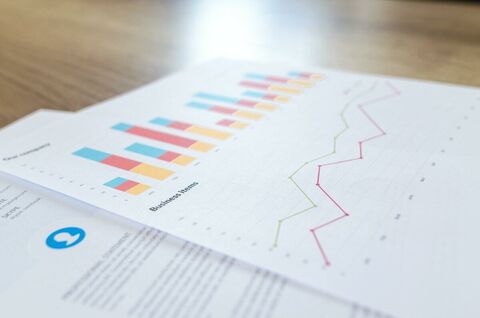Are you ready for an enterprise resource planning solution?
As your business scales, your systems need to scale with you. Moving to an enterprise resource planning (ERP) solution is the best way to stay in control of your growing business.
As your business scales, the complexity of your systems, data and management information will grow at a similar pace. And if you're using software, apps and systems that are aimed squarely at the small business market, these platforms may begin to creak at the seams a little.
This is when moving to an enterprise resource planning (ERP) solution makes a lot of sense.
But what is an ERP solution? And how does upgrading to one of the current breed of ERP software help you get back in control of your expanding business?
What exactly is an ERP solution?
An Enterprise Resource Planning (ERP) solution is a comprehensive software system that integrates and manages various core business processes across your organisation.
If you want to stay in control of all areas of your business, ERP software puts you back in the driving seat. Your ERP solution will streamline and automate functions such as finance, human resources, inventory management, procurement, sales and customer relationship management.
5 key benefits of using an ERP solution
In today’s digital world, having the right data and management information at your fingertips is a must. And with an ERP system in place, you can plan, manage and control every area of the business, while also having access to all the important data you need as a business owner.
Let’s take a look at five of the valuable benefits of using an ERP solution:
- Deeper control over your financial management – an ERP solution gives you a broader overview of your finances, enabling in-depth insights into financial data and better control over budgets, expenses and the company’s revenue streams.
- Integrations with other core systems – many ERP platforms will offer seamless integrations with other areas of the business. This allows you to integrate with your sales, manufacturing, inventory and logistics operations, cutting the need for manual data-entry, reducing manual errors and making the business more efficient.
- Detailed data from across the business – ERP software brings you access to real-time data for all the vital functions in the business. With up-to-date, high-quality data to hand, you have a wider overview of all your key business operations. This helps you make data-driven decisions and react quickly to market changes and opportunities.
- Get in control of your budgets and spending – it’s far easier to manage your spending with the enhanced planning and budgeting capabilities of today’s ERP platforms. You can optimise your processes, reduce waste and manage your resources more effectively, all of which gives a boost to your overall financial performance.
- Made informed, data-driven decisions – the analytics, reporting and forecasting offered by an ERP solution help you make informed decisions, based on solid, evidence-based data. This helps you play to the company's strengths, leverage your competitive advantages and support the sustainable growth of your enterprise.
Talk to us about which ERP platform is best for your business
Choosing the right ERP software for your business comes down to finding the solution that’s best suited to your industry, business processes and underlying way of working.
We’ll help you decide which solution is the best fit, and can help you set up the software, integrations and reporting that will make your ERP solution really deliver.
Get in touch to talk about moving to an ERP platform.
Get in touchRelated Articles

Cost-saving measures and how they drive profits
Boost profitability by managing costs effectively. Learn the benefits of proactive cost-saving measures for your business.
Read On
5 tips for controlling your cashflow
Cashflow keeping you awake at night? We share 5 tips to control your cashflow and achieve a positive cash position.
Read On
Do customers still want good, old-fashioned customer service?
Customers still value human service over chatbots. Discover why investing in people can be good for business growth.
Read On